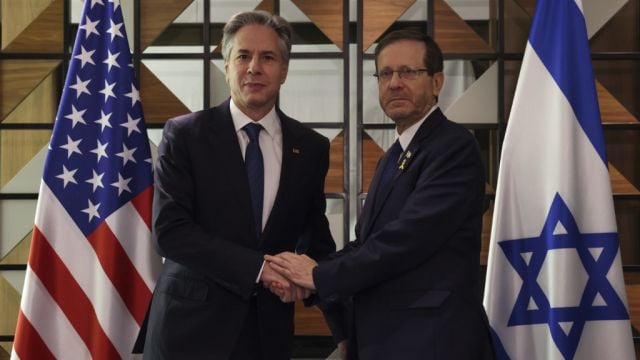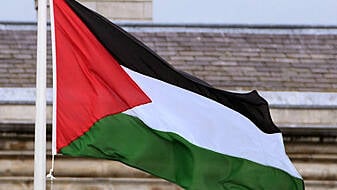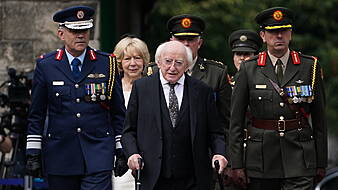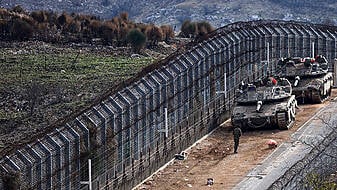US secretary of state Antony Blinken has said the time is now to conclude a Gaza ceasefire agreement that would return hostages held by Hamas and bring relief to Palestinian suffering after 10 months of devastating fighting in Gaza.
Mr Blinken’s ninth urgent mission to the Middle East since the conflict began came days after mediators, including the United States, expressed renewed optimism a deal was near.
But Hamas has expressed deep dissatisfaction with the latest proposal and Israel has said there were areas it was unwilling to compromise.
The trip, days ahead of new talks expected this week in Egypt, comes amid fears the conflict could widen into a deeper regional war following the killings of top militant commanders in Lebanon that Iran blamed on Israel.
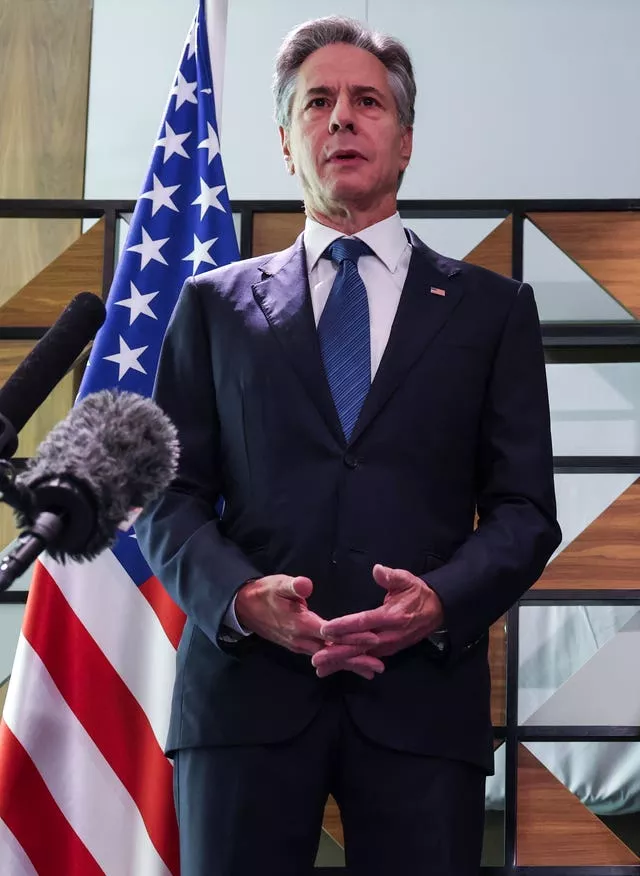
“This is a decisive moment, probably the best, maybe the last, opportunity to get the hostages home, to get a ceasefire and to put everyone on a better path to enduring peace and security,” Mr Blinken said as he opened talks with Israeli President Isaac Herzog in Tel Aviv.
“It’s also time to make sure that no one takes any steps that could derail this process,” he said in a veiled reference to Iran.
“And so we’re working to make sure that there is no escalation, that there are no provocations, that there are no actions that in any way move us away from getting this deal over the line, or for that matter, escalating the conflict to other places and to greater intensity.”
Mr Herzog thanked Mr Blinken for the Biden administration’s support for Israel and lamented a spate of recent attacks against Israelis in the past 24 hours.
“This is the way we are living these days,” Mr Herzog said. “We are surrounded by terrorism from all four corners of the Earth and we are fighting back as a resilient and strong nation.”
Mediators are to meet again this week in Cairo to try to cement a ceasefire. Mr Blinken will travel to Egypt on Tuesday after he wraps up his Israel stop in meetings with Prime Minister Benjamin Netanyahu and defence minister Yoav Gallant later on Monday.
The war began on October 7th when Hamas-led militants broke into Israel, killing some 1,200 people, mostly civilians, and abducting around 250.
Of those, some 110 are still believed to be in Gaza, though Israeli authorities say around a third are dead. More than 100 hostages were released in November during a week-long ceasefire.
Israel’s counterattack in Gaza has killed more than 40,000 Palestinians, according to local health authorities, and devastated much of the territory.

Late last week, the three countries mediating the proposed ceasefire — Egypt, Qatar and the US — reported progress on a deal under which Israel would halt most military operations in Gaza and release a number of Palestinian prisoners in exchange for the release of hostages.
Shortly before Mr Blinken arrived in Tel Aviv on Sunday, Mr Netanyahu told a Cabinet meeting there are areas where Israel can be flexible and unspecified areas where it will not be.
“We are conducting negotiations and not a scenario in which we just give and give,” he said.
The evolving proposal calls for a three-phase process in which Hamas would release all hostages abducted during its October 7th attack.
In exchange, Israel would withdraw its forces from Gaza and release Palestinian prisoners.
Hamas accuses Israel of adding new demands that it maintain a military presence along the Gaza-Egypt border to prevent arms smuggling and along a line bisecting the territory so it can search Palestinians returning to their homes in the north.
Israel said those were not new demands, but clarifications of a previous proposal.
Officials said the US has presented proposals to bridge all the gaps remaining between the Israeli and Hamas positions. Formal responses to the US outline are expected this week and could lead to a ceasefire declaration unless the talks collapse, as has happened with multiple previous efforts.
